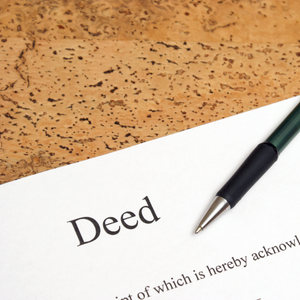
Understanding the complexities involved in changing the names on a property deed can be challenging. This guide from Swift Cash House Buyer will be helpful for people in Wilmington, DE, who want to know about the process for removing a name from a property deed. Whether it is for personal or legal reasons, a change may be necessary. This guide will provide a pragmatic approach to passing property deeds, outlining the vital steps and legal matters required to achieve the change with the utmost legality and efficiency. This will allow for a positive adjustment and the change of property ownership.
Key Highlights
- Understanding different deeds, like claim and warranty deeds, is crucial for property transactions.
- Claim deeds transfer property interest without title guarantees, often used in quick or informal situations.
- Warranty deeds provide extensive protection, ensuring the title is free from undisclosed issues.
- Quitclaim deeds are efficient for trust-based transfers but lack title guarantees, requiring due diligence.
- Removing a name from a deed involves legal steps, including notarization and compliance with Delaware laws.
Understanding Different Types of Property Deeds
Knowledge of deeds is crucial for anyone involved in Wilmington, DE, real estate, especially for the transfer and ownership of property. Legal documents that secure and convey rights of ownership are property deeds. Within the real estate spectrum, warranty deeds, quitclaim deeds, and special claim deeds are common. Each fulfills different needs, and having a working knowledge of these deeds assists the owner in avoiding disputes. Protecting one’s positive interest in a real estate transaction is fundamental in real estate.
Most home sales provide a warranty deed, which is the most secure, guaranteeing a clear title and protection against all future claims. Alternatively, quitclaim deeds are for non-commercial transfers of ownership and are often used among family members or to clear ownership questions. Special claim deeds provide limited protection and, thus, fall between the two. A complete understanding of these distinctions facilitates the transfer of the most appropriate deed, thus ensuring the real estate transaction is as seamless as possible and providing the owner with a positive, enforceable claim to the property.
The Role of a Claim Deed

A claim deed, or quitclaim deed, transfers property interest between parties without any assurances regarding the title. It conveys whatever interest the grantor holds, which makes it ideal for gifting property to family members or for transfers during divorce settlements. In Wilmington, DE, claim deeds facilitate rapid transfers while avoiding excessive legal complexities, although the risk for the grantee is substantial. Since the grantee purchases the property “as is,” any title issues, unpaid property taxes, liens, or encumbrances that were not disclosed during the transfer may significantly undermine ownership.
Claim deed recording is mandatory for the purpose of legally documenting ownership transfer and making other parties aware of the new ownership while updating public records. It also protects the parties in case of future ownership transfer disputes. Before accepting a claim deed property, due diligence, such as a review of the property title and other records, is important. Potential scars in property history may require assistance from a property deed lawyer to complete the transaction. Claim deeds are simple, but require professional assistance to avoid and minimize legal risks.
In light of the intricacies surrounding claim deeds, here are critical considerations for effectively utilizing them in property transactions:
- Verify the property’s title status for undisclosed issues before finalizing the transfer.
- Review and confirm any liens or unpaid taxes associated with the property.
- Ensure all parties understand the limited protection offered by a claim deed.
- Record the deed promptly with the county recorder to legitimize the ownership transfer.
- Consider potential risks when transferring property between unrelated parties.
- Seek legal advice to navigate the complexities of property deeds.
These points underscore the importance of caution and due diligence when dealing with claim deeds. If you’re looking to sell your home for cash in Elsmere or nearby cities, you can explore simple and hassle-free solutions that make the process quicker and more efficient.
Warranty Deed: What You Need to Know
A warranty deed protects buyers of real estate by assuring them of the title’s status. Unlike a claim deed, it guarantees the grantee that the property is devoid of hidden liens, encumbrances, or competing claims. In Wilmington, Delaware, warranty deeds provide buyers and sellers of real estate transactions (residential and commercial) with legal peace of mind. There are two fundamental types. The general warranty deed guarantees the title back to the property’s origins, while the special warranty deed limits protection to the period of the grantor’s ownership. Regardless of the type, both guarantee that the grantor will be responsible for legal defenses against all claims of title.
The warranty deed needs to be recorded with the county recorder to finalize the transfer of the deed, and keep the public records updated to provide a legal reference in the event of a dispute. The property laws of Delaware endorse the protections that warranty deeds provide, strengthening the position of the grantee. In high-stakes transactions, this is very important. The certainty of ownership position and title is critical. With warranty deeds, buyers can be certain that the property rights are guaranteed, and sellers provide legally transparent and sound transactions.
| Deed Type | Key Features | Common Uses | Considerations |
|---|---|---|---|
| Claim Deed | Promises title with no warranty; | Primarily for family transfers or clear title issues; | Limited buyer protection; |
| Warranty Deed | Full ownership guarantee and protection; | Residential and commercial property sales; | Requires due diligence; |
| Quitclaim Deed | Primarily for family transfers or clear title issues. | Property transfers among trusted parties; | Potential title defects; |
This table highlights the distinct characteristics and appropriate applications of various deed types, showcasing their significance in property transactions.
The Uses of a Quitclaim Deed
Quitclaim deeds are quick and uncomplicated ways to transfer property interests without transferring guarantees regarding the title. In Wilmington, DE, they are executed in low-risk and trusting scenarios, like transfers between relatives and divorce-related adjustments to marital property. Their quick execution provides for the rapid alteration of a property’s title in emergencies, such as facilitating the removal of a name from a deed. Still, the grantee receives only the rights of the grantor, and there are no assurances that they will not be sued for title defects or competing claims. The deed must be recorded with the county recorder to complete the transfer and ensure the legal interests of all parties are secured.
In addition to family transfers, quitclaim deeds serve as a means to address mistakes made in prior deeds, estate planning, or transfers into a trust. Although the absence of a warranty may seem like a detriment, in many trusted transactions, the deed’s simplicity and the ability to close a transaction quickly usually compensate for potential disadvantages. The grantee needs to be advised legally as to which steps they should follow to conduct proper due diligence, and all parties must have a clear understanding of the implications of a deed. With the appropriate care, homeowners may be able to effect property transfers while accepting the absence of title protections.
Steps to Remove a Name from a Property Deed in Wilmington, DE

Removing a name from a property deed in Wilmington, DE, is a straightforward process once the necessary steps have been determined. This may have been motivated by a divorce, a sale, or other reason, but whatever the case may be, it is important to proceed with accuracy. This is to make sure it is valid, recognized, and legally transferable. The process is usually initiated by the individual establishing the deed type. After this, they confirm all the concerned parties are in agreement and/or involved with the change.
After the necessary documentation is executed, this may or may not involve notarization as required by the laws in place. The documentation must be recorded with the county recorder’s office. This is to finalize and formalize the change as required by the law. The laws that govern property in Delaware are a little complicated. This is where having the appropriate legal counsel may save all parties involved a considerable amount of frustration. In most cases, changing the name on a deed to legally protect everyone involved is a seamless process when the right steps are in place.
How to Initiate the Process
Wilmington, DE, property deed name removal begins with gathering all documents, the original deed, and proof of ownership. Determining the type of deed is important since deed types have different procedures and protections, including quitclaim and warranty deeds. The procedure usually begins with a meeting of all interested parties and, at times, a real estate or estate lawyer. Such a meeting ensures agreements on each party’s obligations, including compliance with the property laws of Delaware. Preventative counsel at this point is valuable to prevent errors and ensure completion of all legal forms.
Executing the deed entails obtaining the necessary notarization. It is important to note that a quitclaim deed is used; thus, there is a necessity for considerable due diligence to find possible liens or encumbrances against the property. The last step entails filing the deed with the county recorder’s office in Wilmington. This action completes the deed transfer and updates the public records. The interests of the parties involved are safeguarded in this action. In this manner, removing a name from a property deed becomes a safe, efficient, and well-counseled transaction.
Legal Considerations and Requirements
Legal aspects are crucial in removing a name from a property deed in Wilmington, DE, due to the state regulations that must be followed and potential future conflicts that may arise. Specific circumstances surrounding the deed removal, including divorce, sale, and estate settlement, determine the types of deeds appropriate for the situation – either a quitclaim deed or another alternative. A divorce situation requires a court order for the equitable division of property. It is also important that all parties are legally competent to execute the deed, and this is most important when real estate transfers involve deceased owners and estate planning documents need to be assessed.
Prior to the deed transfer, another critical legal obligation is resolving property liens or encumbrances, accomplished through a title search. Once the new deed is prepared, recording the deed with the county recorder’s office is also vital, thus updating the public records and awarding legal proof of the change in ownership. After successfully completing these legal processes and in compliance with Delaware law, every homeowner should be able to attain legal counsel protection from all parties.
Property Ownership Implications When Removing a Name
Removing someone’s name from a property deed may change the ownership dynamics, especially in Wilmington, DE, but the effect depends on the property holding arrangement. For instance, the joint tenants may sever the right of survivorship, thus affecting how ownership transfers on the death of a co-owner. In the case of tenants in common, the change may redistribute ownership and influence the control a person has over the property.
Being cognizant of these realities will facilitate protecting one’s rights to the property and avoiding conflict, whether legal or financial. Moreover, ownership change has consequences, including in estate planning, selling the property, mortgaging it, or taxation. Homeowners can make a deliberate decision to enhance clarity in their property arrangement by identifying the impacts of name removal on their present and future ownership. If you’re looking to sell your home for cash in Wilmington or nearby cities, you can explore simple and hassle-free solutions tailored to your needs.
The Impact on Joint Tenants and Tenants in Common
Removing a name from a property deed can be particularly impactful to joint tenants and tenants in common in Wilmington, DE. Joint tenancy means that all owners have equal shares and rights of survivorship; therefore, when one owner dies, the remaining owners automatically inherit the deceased owner’s share. The dynamics of the ownership structure can change and affect the surviving tenants’ rights if a change is made. Due to its straightforward nature, a quitclaim deed is commonly used; however, it is essential to perform proper due diligence, as quitclaim deeds do not provide any title assurances.
In contrast, tenants in common each have a definable share of the property, and that share can be given away, sold, or transferred separately from the remaining shares, which allows for added flexibility but also added complexity when it comes to name removal. Changes to the ownership structure may be made informally between the owners, but should be formally documented and aligned with Delaware property law to avoid legal issues. Working with a property or estate attorney will ensure that all changes are made, considering the county’s record office, to avoid issues with ownership rights and potential disputes. Expert guidance helps keep transitions seamless and protects the interests of all parties involved.
Long-term Effects on Property Ownership

The implications of Wilmington, DE, property ownership changes, particularly removing a name from a deed, are complex, influential, and extend beyond immediate and exclusive ownership changes. It involves estate planning, property management, and the legal aspects of real estate transactions, all of which influence varying estates and levels of documentation required. Planning ensures liabilities, inheritance, and property dispositions are within and concise to the owner’s intent to ease the burden and probable conflict of heirs and legatees.
Removing ownership will continue to adversely impact the title defensibility and, to future purchasers, the value and marketability of the property. The legal recognition of ownership and the protection of property from claims by adverse parties derive from addressing encumbrances and claims on the property, performing a title search, and filing the legal deed post-adjustment with the county recorder. Finally, it is critical to increase the likelihood of property value preservation by engaging property lawyers to address the unique properties of Delaware property law. Planning the future minimizes the need to impact the present, but it remains necessary, even when it comes to the management of real property.
In Wilmington, DE, the successful removal of a name from a property deed necessitates a keen comprehension of the underlying legal parameters. The process of shifting ownership can be simplified by the appropriate provision, preparation, and submission of the requisite documentation, and, if necessary, the provision of legal consultation. The financial and legal ramifications that may arise as a result of the ownership of property and the assessment of real estate taxes should be carefully considered. Local legal requirements would enable a smooth transition and safeguard all stakeholders involved in the property transaction. The more you take informed steps, the greater the chances of a property transaction being smoother.
FAQS
What are the steps to remove a name from a property deed in Wilmington, DE?
This involves document acquisition, deed type determination, deed execution, notarization, and deed recording with the county recorder. A lawyer will ensure adherence to Delaware property laws.
What types of deeds might be involved when altering a property deed?
Claim deeds, warranty deeds, and quitclaim deeds are examples of common deeds. Each one serves a different purpose and affords different levels of protection. The consequences, whether legal or financial, that result from a misunderstanding of these distinct roles can be significant.
How do claim deeds differ from warranty deeds?
Claim deeds convey an interest in property, but without a promise as to the state of the title. They are frequently employed in informal transactions. Conversely, warranty deeds provide assurance that the title is free of encumbrances, protecting the purchaser to a greater extent.
What role does notarization play in the deed alteration process?
In Delaware, notarization is essential because it validates and authenticates the signatures on the deed, demonstrating trustworthiness concerning the deed. This is necessary to ensure the deed is valid.
Why is it important to record the new deed with the county recorder?
Updating the public records through a deed recording signifies the completion of a transfer and protects all parties’ interests. This minimizes the risk of disputes arising in the future.
Do you need to remove a name from a deed or sell your home? Whether it’s due to divorce, inheritance, or a title update, the process can feel overwhelming. Swift Cash House Buyer is here to help. We simplify property transactions, handle all the details, and make the process seamless. If selling is the right option, we also offer fair cash offers so you can move forward quickly without costly repairs or delays. Ready to update your deed or explore a hassle-free sale? Contact us at (610) 590-9845 for a no-obligation offer. Get started today!

